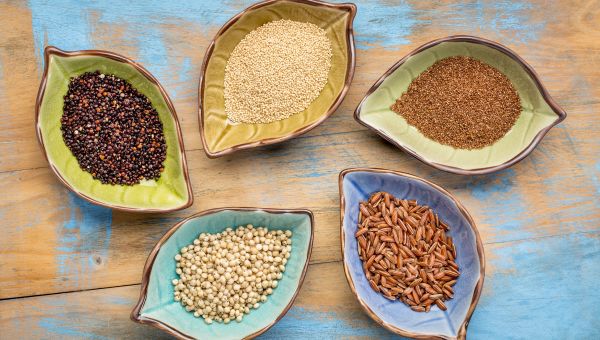How to save money and live longer at the same time
Can’t afford a personal chef or trainer? You can still optimize your health while sticking to a budget.
Updated on August 6, 2024

With fresh produce being so expensive and gyms charging a fortune for memberships, it can often feel like you have to choose between your health and your paycheck.
But you don’t need to drain your savings to live a long, healthy life. Alan Burgess, MD, an internal medicine doctor in Denver, Colorado offers smart, cost-saving tips that can also add years to your life.

Start a meal club with friends
You can save up all week and then splurge on one dinner out with friends. But why overspend at a restaurant when the real longevity benefit of dining with supportive friends is sharing their company?
Get together for rotating meal nights instead: Each friend can cook for the group on a… Show More
You can save up all week and then splurge on one dinner out with friends. But why overspend at a restaurant when the real longevity benefit of dining with supportive friends is sharing their company?
Get together for rotating meal nights instead: Each friend can cook for the group on a different night of the month. Start by setting a price cap that everyone agrees to. Then pick simple, healthy recipes that fit the budget.
“You don't have to go out with friends,” says Dr. Burgess. “Invite a small group over for simple food and great conversation.” You’ll get a few free meals each month, plus the chance to share and learn tasty, affordable recipes.
Show Less
Buy a personal water filter for cheap, easy hydration
Water falls from the sky and covers most of the earth. So it should be free. “Incredibly, bottled water can be more expensive than soda,” says Burgess. “Some soda companies actually bottle the same water they use to make soda and then charge more for it.”
Ditch the plastic habit. Invest in a… Show More
Water falls from the sky and covers most of the earth. So it should be free. “Incredibly, bottled water can be more expensive than soda,” says Burgess. “Some soda companies actually bottle the same water they use to make soda and then charge more for it.”
Ditch the plastic habit. Invest in a reusable water bottle with a filter so you can drink purified tap water anywhere. It may cost around $15 to $30, but since the average American spends more than a hundred dollars on water bottles annually, it’ll help you save in the long run. Plus, having a personal bottle on-hand can help you drink more water. Staying adequately hydrated keeps you mentally sharp, supports healthy joints, and may even slim your waistline.
Show Less
Know where to go for free, lifesaving health checks
“One of the best ways to increase your odds of living a long, healthy life is to follow illness screening recommendations,” says Burgess. “Go for your routine mammogram. Get your colonoscopy. Follow the national guidelines.” Doing so could save you from worry, pain, and large medical… Show More
“One of the best ways to increase your odds of living a long, healthy life is to follow illness screening recommendations,” says Burgess. “Go for your routine mammogram. Get your colonoscopy. Follow the national guidelines.” Doing so could save you from worry, pain, and large medical bills in the future.
Use this interactive map from the National Breast and Cervical Cancer Early Detection Program (NBCCEDP) from the Centers for Disease Control and Prevention (CDC) to find free or low-cost breast and cervical cancer screening services near you. Also check the National Association of Free and Charitable Clinics to see which free health screenings and services are available in your area.
Show Less
Stock up on cheap, heart-healthy whole grains
Eating whole grains can help you stick to an overall healthy diet by keeping you full between meals. They’re loaded with cholesterol-lowering fiber, can keep your blood sugar levels stable, and they offer heart-healthy antioxidants.
Store these quick-cooking grains in your pantry for… Show More
Eating whole grains can help you stick to an overall healthy diet by keeping you full between meals. They’re loaded with cholesterol-lowering fiber, can keep your blood sugar levels stable, and they offer heart-healthy antioxidants.
Store these quick-cooking grains in your pantry for cheap, satisfying side dishes that cost under $10 per pound. Simply boil them until tender, drizzle some olive oil, and add salt, pepper, and herbs to taste.
- Bulgur: Cook 4 to 10 minutes for fine or medium grain
- Millet: Cook 10 to 20 minutes
- Quinoa: Cook time 10 to 15 minutes

Get a killer workout without spending a dime
Want an amazing workout but can’t afford a gym membership? Pick up a weighted, fitness jump rope for around $15 at a sports or wholesale store instead. Jumping rope is fun, it burns calories, and it works every major muscle group. Just 15 minutes of jumping can burn around 200 calories.
Want an amazing workout but can’t afford a gym membership? Pick up a weighted, fitness jump rope for around $15 at a sports or wholesale store instead. Jumping rope is fun, it burns calories, and it works every major muscle group. Just 15 minutes of jumping can burn around 200 calories.
Walking is another cheap but excellent form of exercise, says Burgess. Invite friends to take regular walks with you. It’s a chance to socialize and it’s absolutely free. If you can’t get outside, try no-cost indoor exercises like stair climbing or dancing while doing chores. Make vacuuming a workout by adding music, he suggests.
Show Less
Choose rich, filling lentils instead of red meat
Legumes like beans and lentils are some of the cheapest forms of high-quality protein, says Burgess. Lentils are a cholesterol-lowering legume that:
- Are loaded with fiber
- Contain health-promoting vitamins and minerals like iron, potassium, and B vitamins
- Are slow to digest, which keeps your … Show More
Legumes like beans and lentils are some of the cheapest forms of high-quality protein, says Burgess. Lentils are a cholesterol-lowering legume that:
- Are loaded with fiber
- Contain health-promoting vitamins and minerals like iron, potassium, and B vitamins
- Are slow to digest, which keeps your blood sugar stable and helps you feel full longer
Lentils come in a variety of flavors and textures, which can make your meals more interesting. They can also keep your diet lean and healthy by letting you get enough protein without using red meat, which is high in saturated fat. The best news? A pound of lentils costs less than $2.
Show Less
Avoid risky habits that can cost you in the long run
A pack of cigarettes can cost between $6 to $12 per pack, depending on your state. But consider the “invisible” dollars that each pack costs in the form of healthcare costs, income losses, and lost productivity. Over a lifetime, smoking can actually set you back more than $5 million,… Show More
A pack of cigarettes can cost between $6 to $12 per pack, depending on your state. But consider the “invisible” dollars that each pack costs in the form of healthcare costs, income losses, and lost productivity. Over a lifetime, smoking can actually set you back more than $5 million, depending on which state you live in, according to some estimates.
Smoking also adds years to your RealAge, which is an estimate of how you’re aging biologically based on your lifestyle and health habits. Take the RealAge test to learn how your overall health relates to your biological age.
If you want to increase your chances of living as long as possible, you need to avoid risky behaviors, says Burgess. Also remember to wear your seatbelt and never text while driving, he adds.
Show Less
Bushak, Lecia. Smokers face nearly $3M in costs over a lifetime of smoking: study. MM+M. January 11, 2023.
Harvard T.H. Chan School of Public Health. The Nutrition Source. Lentils. Accessed January 31, 2024.
Tangka F, Kenny K, Miller J, Howard DH. The eligibility and reach of the national breast and cervical cancer early detection program after implementation of the affordable care act. Cancer Causes Control. 2020;31(5):473-489.
The University of Chicago. Department of Psychiatry & Behavioral Neuroscience. The Real Cost of Smoking by State feat. Dr. Fridberg. January 15, 2020.
The Water Project. The Money Spent Can Be Used Better Elsewhere. Accessed January 31, 2024.
Watters CA, Corrado RS, Chaloupka FJ. Prices of healthy and unhealthy beverages in high and low per capita income areas. Hawaii J Med Public Health. 2013;72(3):76-79.
More On


video

article

slideshow


video


video
